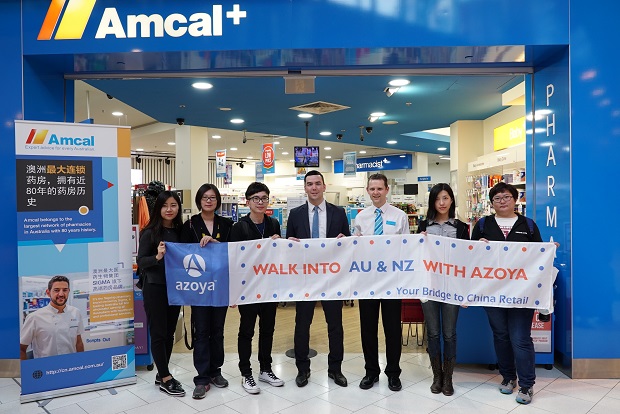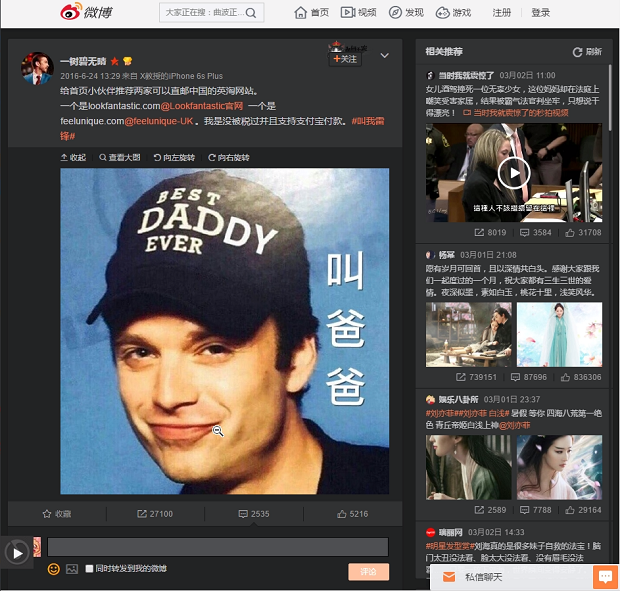Don Zhao, co-founder of Azoya, examines why working with local online influencers will improve digital marketing effectiveness.
Ecommerce digital marketing in China is rapidly evolving. Consumers are tiring of traditional channels and are more likely to pay attention to recommendations by KOLs (key online influencers) whom they trust. Countless influencers, including experts, celebrities, professional bloggers and even politicians, have emerged in the past couple of years on social media platforms such as WeChat and Weibo, and built up vast virtual communities of consumers with like-minded interests, lifestyles and shopping behaviour.
It’s a natural progression in many ways as Chinese consumers have become more sophisticated and selective in their shopping habits. It’s also a reflection of the increasing power of millennials who are establishing their own behaviour around ecommerce and driving this trend.
Chinese brands have been quick to seize the opportunity to successfully reach new audiences through these influencers. In order for a UK retailer to succeed in China, it must engage these social media stars in strategic and incentivised campaigns.
So, how best to get the conversation started?
Establish relationships
Decide on objectives. It’s important for retailers to understand that besides increasing sales, these relationships will be an important channel for building brand presence and enhancing their own influence as an expert within the Chinese market. Look at the recent performance of a KOL’s activities and evaluate the return on investment from using them.
Aim for an influencer who has between 50,000 and 100,000 followers. In Chinese terms, these are actually small-scale KOLs, but they tend to be cost-effective and very active in engaging with followers in their specialist area. Be aware that although many followers tend to be pretty loyal, the lifetime of even the most popular influencer is uncertain.
Influencers are most effective in promoting categories such as beauty products, cosmetics, mother and baby products and fashion. KOLs in these sectors can be reached via an agency or affiliate. In China, an affiliate refers to an alliance of advertisers that receives orders from companies to promote their campaigns and products, some of which specialise in overseas shopping and work with KOLs.
Another option is to work with a high-profile celebrity who can be contacted via their agent, but they are an expensive option. Also, if they are already working with numerous brands, it’s likely yours could get scant attention from their followers.
Planning campaigns
A collaborative nature is fundamental to a campaign’s success. The relationship is usually based on commission, or the influencer will be offered a free product trial in return for inclusion in their posts.
Creating authentic content is crucial. Product placement alone is not going to win over new customers. A more effective approach is for the influencer to link a product or brand with a personal experience.
For example, a group of KOLs were recently invited to Australia to visit local pharmacies which sell online to China. The results were impressive. The subsequent exposure of these retailers via the influencers built up brand awareness and boosted sales. For one Australian pharmacy, Amcal, sales increased by 135% after the campaign. Interestingly, followers on Amcal’s WeChat account continued to increase after the campaign too.

KOLs raised awareness of Australian online pharmacies by visiting their stores and endorsing their products online
KOLs can also be instrumental in increasing the popularity of longtail products. When the brand Bioeffect, a niche Icelandic beauty product started collaborating with opinion leaders, it achieved ten times its annual sales in China over a two-day promotion period.
Posts from influencers can have serious reach. A passing mention of online cosmetics retailers Feelunique and Lookfantastic by a user on Weibo had more than 270,000 shares and 2,500 comments thanks to fellow influencers sharing the content.

KOLs helped two cosmetic retailers reach 270,000 potential customers.
Keep an eye on upcoming trends
Looking ahead, retailers should also be thinking about working with KOLs to encourage shopping tourism, where Chinese consumers visit specific London stores off the back of a recommendation. This would extend a KOL’s reach from online to offline.
KOLs are a big part of the marketing conversation in China, but the power of these influencers is only just beginning. The challenge for digital marketers in retail will be making sure people are talking about their brand.
By Don Zhao
Co-founder
Azoya

